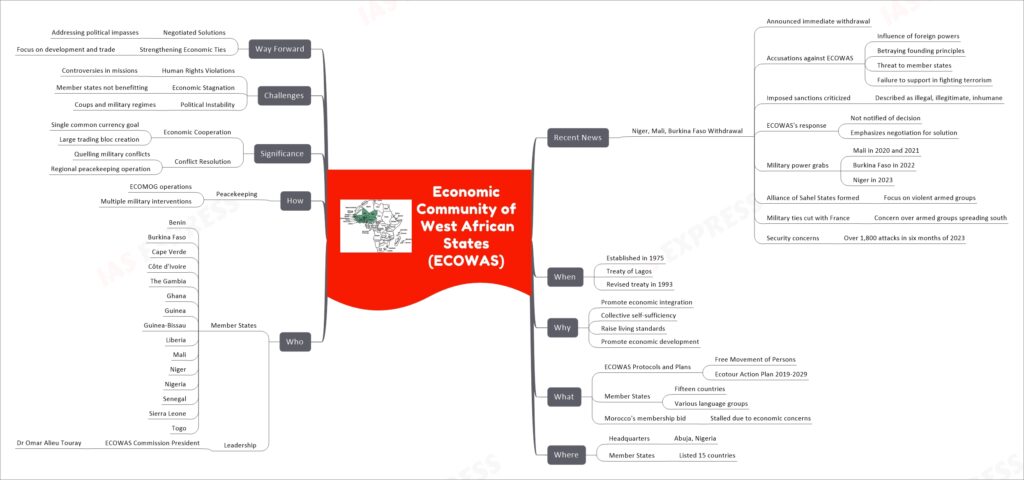ECOWAS

The Economic Community of West African States (ECOWAS) is a regional political and economic union of fifteen countries in West Africa, established in 1975 to promote economic integration, collective self-sufficiency, and raise living standards. Recently, Niger, Mali, and Burkina Faso announced their immediate withdrawal from ECOWAS, citing its failure to support their fight against terrorism and accusing it of betraying its founding principles. ECOWAS responded by emphasizing the need for negotiated solutions and maintaining its commitment to finding a resolution. The organization has faced challenges such as human rights violations during peacekeeping missions, economic stagnation, and political instability marked by military coups. Despite these challenges, ECOWAS continues to strive towards its goals of economic cooperation, conflict resolution, and creating a single large trading bloc, including efforts towards a single common currency. The organization’s future focus includes addressing political impasses and strengthening economic ties among member states.
If you like this post, please share your feedback in the comments section below so that we will upload more posts like this.

